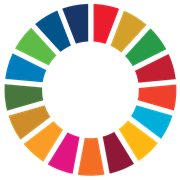Practise key skills, enrich practical work and engage your learners with UN Sustainable development goal 1
Teaching notes
This resource can be used to accompany practical work on the synthesis of aspirin, included in many 16–18 courses across the UK and Ireland. It will stimulate learners to think about science in society and develop critical thinking skills, important throughout their studies and future careers.

Sustainability in chemistry

This resource accompanies the Education in Chemistry article Tackle poverty in chemistry lessons where you will find more support and suggestions for how to connect your current chemistry teaching with UN sustainable development goal 1: end poverty in all its forms everywhere.
The resource is split into two tasks which can be carried out over two whole or part lessons.
- Task 1 includes a free writing task and introductory information, including a video on medicinal drugs (approximately five minutes), before learners are put into small groups to discuss their ideas.
- Task 2 is a research and discussion task. In small groups, learners share out the topics to research. The research task could be set as homework with the members of the groups coming back together in the second lesson to use the evidence from their collective research to answer questions.
When setting the research task, highlight to your learners the importance of being aware of bias. A website by a leading drug manufacturer will give a different perspective to a university research department, a rehabilitation centre or a campaign group. They should also be encouraged to evaluate the reliability of the information they find and record their sources.
The topics discussed in this resource will help develop your learners’ critical thinking skills and are a perfect springboard for development into a critical analysis essay, eg for the Extended Project Qualification (EPQ).
Task 1: introduction and free writing
Part 1
Learners work individually to reflect on the following questions and free write their ideas.
- Think about the ways in which people (people you know, schools, government and the media) talk about heroin and other addictive street drugs. Who is usually blamed for the problems associated with these drugs? Why (and how) are these people/groups blamed?
- Think about how aspirin and other pharmaceutical drugs are talked about by those same groups. Who usually gets the credit for their success? Why (and how) are these people/groups praised?
- Think about how your answers compare to each other. Do the questions about blame and praise and cost and reward matter in debates about the successes and failures of drug synthesis in chemistry?
Free writing is a technique where you write without stopping for a set amount of time. When free writing, spelling, grammar and punctuation can be ignored and the aim is to write down anything that comes to you, without going back and correcting it.
Ask your learners to follow these steps:
1. Clear your mind. Forget the rules. Relax.
2. Set a time limit for yourself, eg ten minutes.
3. Start writing and don’t stop until the time ends.
Part 2
Learners work in small groups to draw on their collective experiences and co-write initial thoughts on the questions from part 1.
The history of drug development tells the story of chemistry as a site of both social and scientific progress and success, as well as social, economic and epistemic harm. Medicinal drugs synthesised by chemists have undoubtedly made millions of people’s lives better. However, the chemical structures of many of these drugs originate in the knowledge of indigenous groups who used plants medicinally, rather than in high-tech laboratories. Furthermore, the process of designing and synthesising new drugs is not always a harmless scientific endeavour: many drugs have had harmful unexpected side effects (eg thalidomide), or turned out to be highly addictive.
Watch this video in which organic chemist Rob Stockman discusses painkillers, such as morphine and heroin.
Epistemic harm occurs when a person is not taken seriously as a knower, reasoner and thinker. This might mean that the individual’s knowledge and ways of knowing are not taken to be as legitimate as the knowledge of another person (usually in a dominant group). Or it might mean that their knowledge is taken and used by another person and the original knower is not considered worthy of intellectual or financial credit. A group can also suffer from epistemic harm when their ways of knowing are delegitimised (eg they are told their knowledge is ‘not scientific’), or their knowledge is stolen by another group.
Task 2: research and discussion task
Learners work in small groups to divide up the following research tasks (more detailed questions for each task are included in the download):
- Research the history of aspirin.
- Research the history of a ‘miracle’ drug of your choice derived from plants.
- Research the history of an ‘illegal’ drug of your choice.
- Research the opioid crisis in the US.
They then use the evidence and knowledge gained from their research to answer the questions provided. These will help start the conversation on the role of drug synthesis and pharmaceuticals as tools for tackling local and global poverty, as well as how they have contributed to these issues.
Learners then return to their orginal free writing task and reflect on how their ideas have changed, developed or stayed the same.
Link to other goals covered in this series, such as 13: climate change or 2: food security, for more contexts to consider which groups bear responsibility, which groups experience the effects and what can be done to address injustices for a sustainable future.
Find more resources
- Use the Aspirin screen experiment to prepare for and support your practical work on aspirin synthesis.
- Find experiment notes and a student sheet, suitable for 16–18 leaners, for the Synthesis of aspirin on a microscale.
- Inspire your learners to pursue STEM subjects with these strategies to show that science is for ‘people like them’.
- Highlight the everyday relevance of chemistry to your learners with this article on context-based learning.
- Link to a careers video of a policy adviser and find more inspiration with our Making the difference video.
Downloads
Justice and injustice in chemistry: aspirin and other drugs resource
Handout | PDF, Size 0.19 mbJustice and injustice in chemistry: aspirin and other drugs resource
Editable handout | Word, Size 0.14 mb
References
This activity has been inspired by the work of D. Morales-Doyle, Cult. Stud. Sci. Educ., 2020, 15, 639 (DOI: 10.1007/s11422-019-09932-z).



















No comments yet